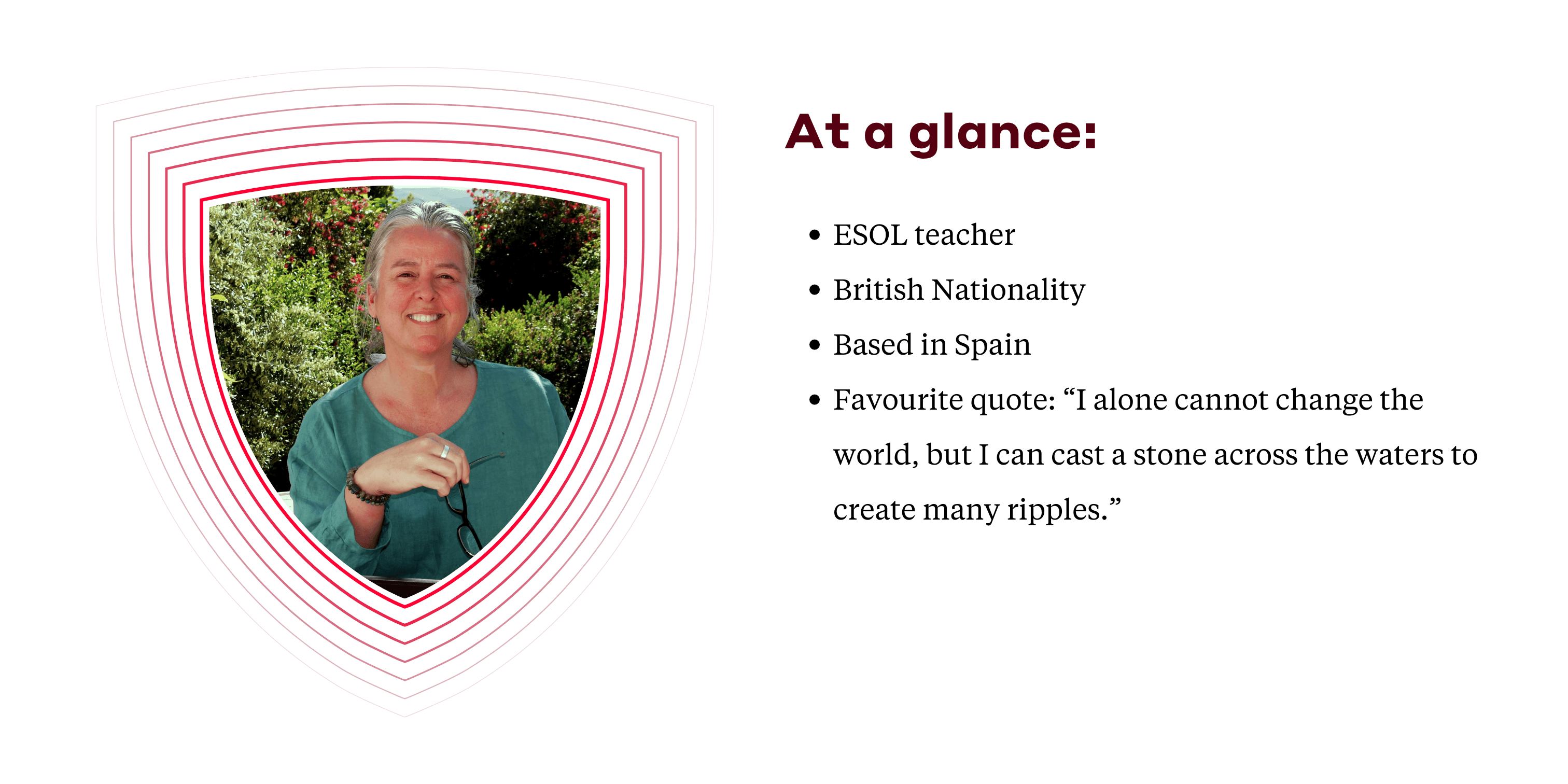Solved in Minutes: The Power of Venn Diagrams in Mathematics
Read now/f/90801/1920x600/9517c1bf7a/blog-banner-venn.png)
/f/90801/1920x600/69974929b9/rebecca-hancock.png)
Rebecca Hancock, born in the UK but raised in the Netherlands, has experienced a diverse range of international living and working experiences. Having resided and worked in countries such as France, Spain, Venezuela, and Portugal, she has gained a broad perspective on different cultures and languages.
Rebecca embarked on her teaching journey as a French and Spanish teacher in a secondary school in the UK following the completion of a PGCE in Modern Languages at Nottingham University. In anticipation of her move to Spain over 15 years ago, she pursued a CELTA qualification, focusing on becoming an English Language teacher.
She has worked in several language schools as a teacher and then as Director of Studies before being approached to train teachers in communicative methodology which led to teacher-training work abroad in places like Turkey, Albania, Indonesia and Thailand.
Now happily settled in Spain, she is really happy working with students around the globe teaching a language she is passionate about from the comfort of her own home.


I live on a remote farm in rural Spain and wanted to work online so I could spend more time at home with my family and many pets. I went through several interviews, was offered several positions, turned all of them down for one reason or another. Then came the job offer from CGA in August 2022 and my research showed it to be a highly regarded school that has integrity, professionalism, and that values both students and staff. It felt right, so I took the leap and have never looked back since.
A: For me the magic words are communication, collaboration and creativity. It is said that English is the language of international communication and I strive to engage my students, who come from all corners of the globe, in discovering a love for learning this language as it is the key that allows them to communicate with each other, work together and share experiences and ideas.
A: My CGA students are very young (10-16), with limited language (A2 level) and what they love is the opportunity to experiment with a variety of creative, cross-curricula activities. I spend a lot of my class preparation time searching for new resources and designing tasks to keep them happy, motivated, and actively involved in their English language-learning experience.
A: The small class size means that as the teacher, you can really identify the strengths and needs of each student and support them on their individual learning journeys. Everyone is given plenty of speaking time to practice a new language, a crucial step in the language-learning process which is often limited in traditional schools.
A: There have been so many! There is never a dull moment with young learners experimenting with new vocabulary. Also, every time a shy student plucks up the courage to speak in English in class for the first time and realizes they have successfully communicated their message, their joy is often palpable.
A: Education is important, but it isn’t everything. Study hard but find time to play hard and be kind to yourself. Do what you really enjoy, not what you think you are supposed to enjoy!
Get some sleep!
Living on a farm, I have very little free time. But I always find time to keep learning; it’s what makes me happy. Now I am studying a joint Physics and Math degree part-time online at the Open University in the UK. It will take me 12 years (or more!) from start to finish but it’s not about reaching the destination, it’s the journey to get there that I love. Other than that, I enjoy wild water swimming, hiking with my husband and dogs, scuba diving, gardening, African dance and reading, reading, always reading.